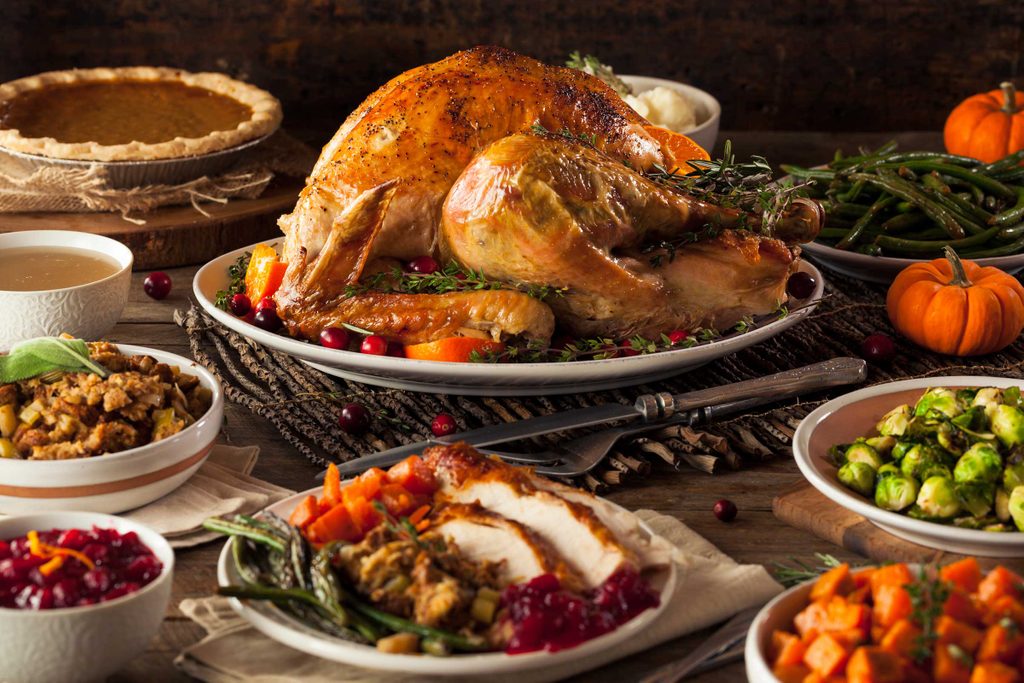It’s Not the Turkey That’s Making You Tired (Blame It on the Trimmings)
Updated: Nov. 19, 2021
You know the drill: Greet relatives, eat turkey, pass out on the couch. But is turkey really to blame for the post-sup stupor? We got to the bottom of this persistent Thanksgiving myth.

Just as traditional as the Thanksgiving turkey is the overstuffed and satisfied sleepiness that follows. And although society has historically pointed a finger at turkey, it turns out that it’s not the main cause of this overwhelming fatigue.
Yes, turkey does contain tryptophan, an amino acid that is a component of the feel-good chemical serotonin as well as a precursor to the sleep-inducing hormone, melatonin. But tryptophan can be found in all kinds of foods, ranging from dairy products and nuts to meats and tofu. And not only that, but turkey doesn’t have higher levels of tryptophan than any other common meat, reported the New York Times. In fact, gram for gram, even cheddar cheese contains greater amounts of tryptophan than turkey, says livescience.com. So if the tryptophan in turkey really did cause our post-Thanksgiving drowsiness, we’d experience the same strong, lethargic sensation every time we ate chicken, beef, cheese, or nuts. And, as we know, this obviously isn’t the case.
But if the tryptophan in turkey isn’t to blame for our sleepiness on Thanksgiving, what is?
It’s actually a combination of factors, starting with the high fat content of most Thanksgiving dinners. The average festive meal contains 229 grams of fat and 3,000 calories, reported MSNBC; that’s more than most men and women eat in an entire day! Digesting fat requires a lot of energy, so the body sends more blood to your digestive system to manage the load. Reduced blood flow throughout your body means reduced energy.
Alcohol is another reason your eyelids may grow heavy. On Thanksgiving, many adults drink beer, wine, or cocktails throughout the day and with their meals without realizing that alcohol is a central nervous system depressant with fast-acting sedative effects.
Finally, on Thanksgiving, even low-carb dieters allow themselves to indulge in carbohydrate-rich foods such as mashed potatoes, pies, stuffing, cornbread, yams covered in marshmallows, and more—all in one sitting. But eating such a ridiculous amount of carbohydrates at once triggers the release of insulin, and digesting it all is a lot of work for your body, which can leave you feeling pretty comatose.
If you swear that you feel particularly sleepy after your Thanksgiving meal, it’s true—you’re not imagining it. But don’t blame the poor turkey. If don’t want to snore on the floor after you’ve cleared your plate, cut back on the fat, carbs, and booze! Check out the best and worst Thanksgiving foods for your weight here.
Download our free Thanksgiving guide — with recipes, jokes, stories and more to help you and your family make unforgettable memories this holiday.